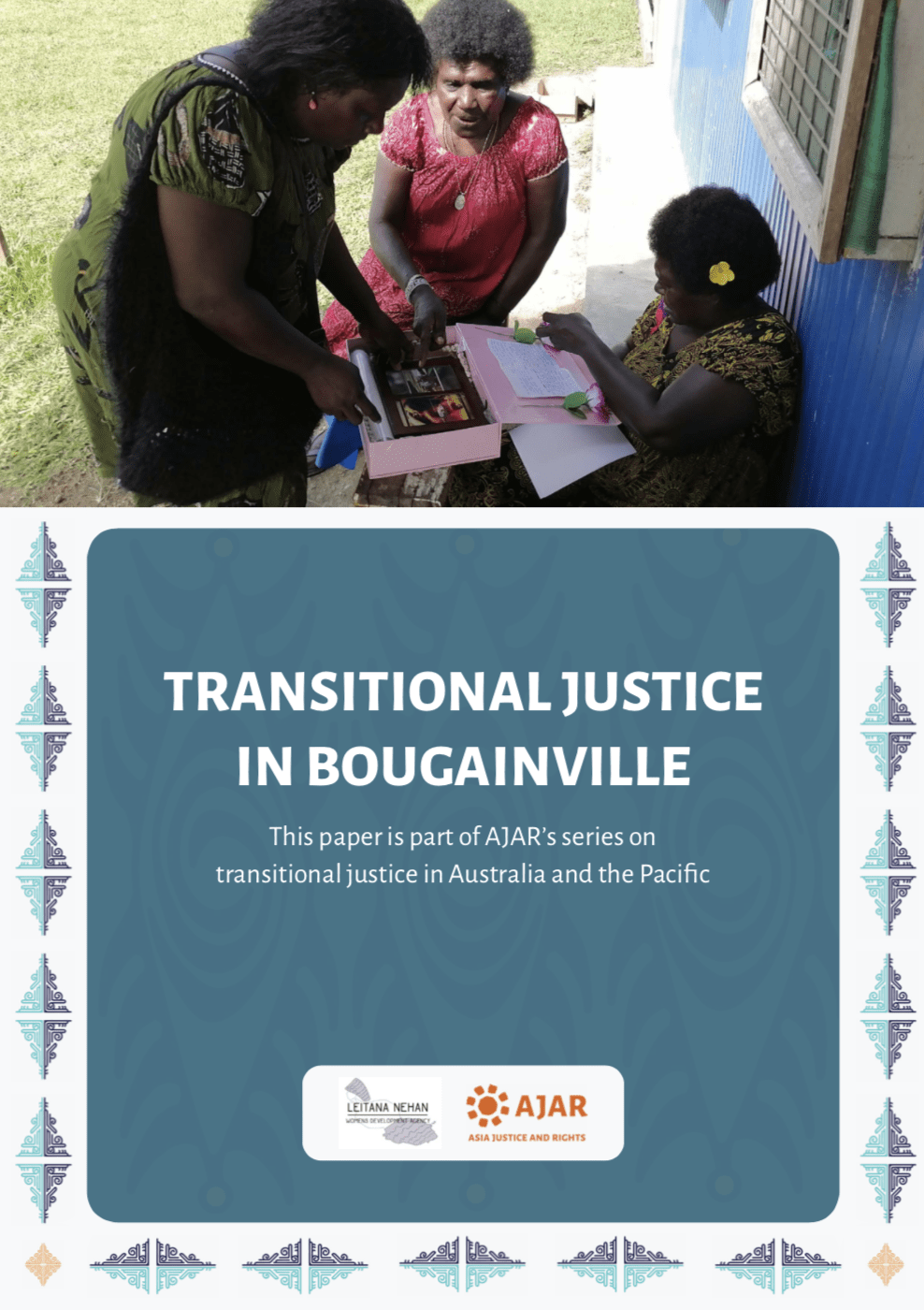In 1972, the Panguna copper mine opened in Bougainville and between 1972-1986 it generated roughly 45% of PNG’s annual export earnings, yet only 1% of revenues went to the people of Bougainville. The mine also caused widespread environmental, social and cultural ramifications for local communities and landowners. It was also the primary source of tensions that led to the outbreak of violence between the Bougainville Revolutionary Army (BRA) and the Defence Force of Papua New Guinea (PNGDF).
During the Bougainville Civil War (1988-1998) an estimated 20,000 people lost their lives, almost 10% of the population. Widespread violations were also perpetrated including extra-judicial killings, arbitrary detention, torture, rape and enforced disappearance. In August 2001, the Bougainville Peace Agreement (BPA) came into effect. The offer of amnesty and pardons for the crime was enshrined in the BPA but it did not prioritise inquiries or transitional justice mechanisms.
A lack of justice and accountability for violations, combined with limited law and order capacity, has created cycles of violence, a culture of impunity and a lack of human security. Survivors of historical and ongoing violations, in particular women, are in urgent need of reparation through measures such as psychosocial support.
In 2019, a referendum was held in Bougainville with 97.7% voting in favour of independence. However, because the referendum is non-binding, the final decision rests with the PNG national parliament. In November 2020, an ‘Independence-Ready Mission’ motion was passed in the Bougainville House of Representatives before launching in 2021.
In this context, the Leitana Nehan Women’s Development Agency used participatory tools to create space for women survivors to share the truth of what happened to them during and after the Bougainville Civil War. For many participants, these workshops were the first time they were able to share their stories among themselves and was a chance to begin the healing process and the first time that survivors had an opportunity to learn about transitional justice and human rights.
Based on this process, Leitana Nehan and AJAR co-produced Transitional Justice in Bougainville. The case study provides a broad overview of the situation and history of Bougainville and highlights key lessons about transitional justice. As well as being of value for human rights practitioners in general, the case study is also useful for human rights defenders and civil society actors on the ground as discussions continue about Bougainville’s path towards independence from Papua New Guinea.
